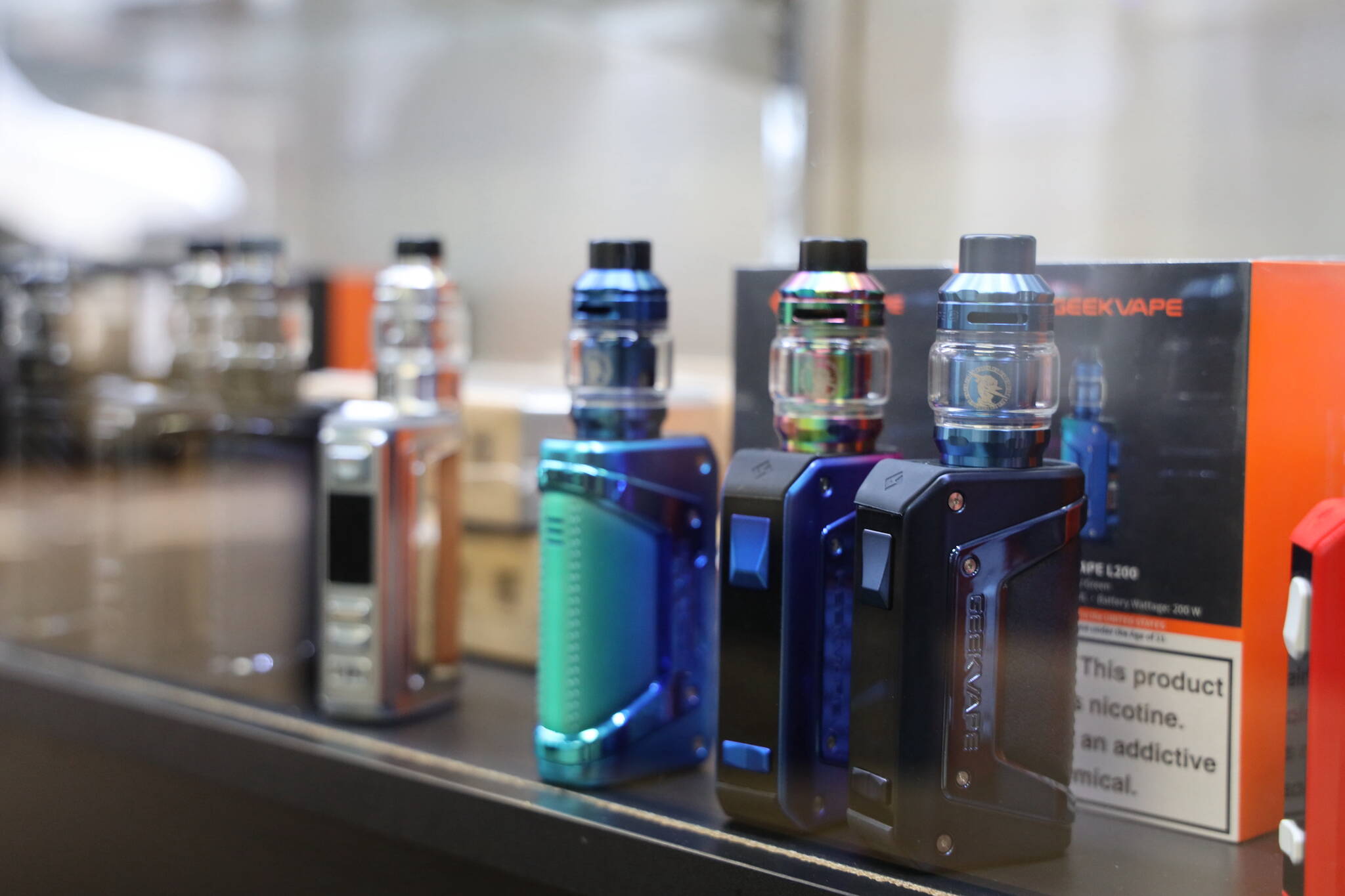Imposing a 25% statewide tax on retail e-cigarette products passed the state Senate with its sponsor saying he’s “reasonably confident” that it will not be vetoed by Gov. Mike Dunleavy, as happened with similar legislation last fall.
Senate bill 89, sponsored by Senate President Gary Stevens, a Kodiak Republican, passed in a 14-6 vote Tuesday afternoon and now heads to the House, which is also attempting to take up an assortment of legislation before Wednesday’s scheduled adjournment.
Despite the time crunch, Stevens said he believes his bill will be among those getting passage in time.
In addition to the 25% tax, the bill would also bring Alaska’s statute in line with the federal government’s 2019 law that raised the national legal age of purchasing, selling or distributing those products to 21, which is two years above Alaska’s current legal age of 19.
That update to the legal age would allow the state enforcement program to go into effect, meaning if someone under the age of 21 is caught in possession of a product containing nicotine, they could face a fine of up to $150. That’s much lower than the original $500 penalty outlined when the bill was first introduced. It was lowered by the Senate Labor and Commerce Committee in April.
The 25% statewide tax would add to Alaska municipal nicotine taxes already in place, such as Juneau, which currently taxes 45%, or $3 a pack, on the wholesale price of tobacco products, according to City and Borough of Juneau Finance Director Jeff Rogers.
Sen. Jesse Kiehl, a Juneau Democrat carried the bill and expressed his support while speaking on the floor Tuesday morning, arguing it targets public health and safety and is not meant to be a revenue raiser.
“This is about reducing the rapidly growing addiction of young people, especially our high schoolers, to nicotine,” he said. “We need to take these steps.”
Sen. Shelley Hughes, a Palmer Republican, agreed that action to address youth nicotine use must be taken, but said she felt the 25% tax and the decrease to a $125 fine was essentially a “slap on the wrist” and did not go far enough. Additionally, she said she didn’t want to OK any taxes until the fiscal plan components moved through the Senate. She voted against the bill.
“I don’t think this is effective, the $500 I think would speak louder to the high school students than a dollar or two tax on a device with nicotine,” she said. “I don’t think we’re hitting the target with this and for that reason, I’m going to be a no.”
Just down the road from the capitol is Alaska Pipeline, a store downtown that markets itself as “Juneau’s largest supply of vapes and vape supplies.”
Travis Kemp-Davis, an employee at the store, said he thinks the additional tax won’t stop youth from buying products. He said he’s been using nicotine products since he was a teenager, and said it’s “easy to get addicted to, but hard to quit so we just keep smoking.” He said even though the price of nicotine and taxes on the products have risen significantly, he continues to smoke.
“If you’re addicted to something, and you want it, you will get it,” he said. “Everyone will find a way no matter how much it costs.”
Kemp-Davis said prevention is the best solution to keep youth away from nicotine products but he doesn’t think adding tax will help with the problem.
• Contact reporter Clarise Larson at clarise.larson@juneauempire.com or (651)-528-1807.

